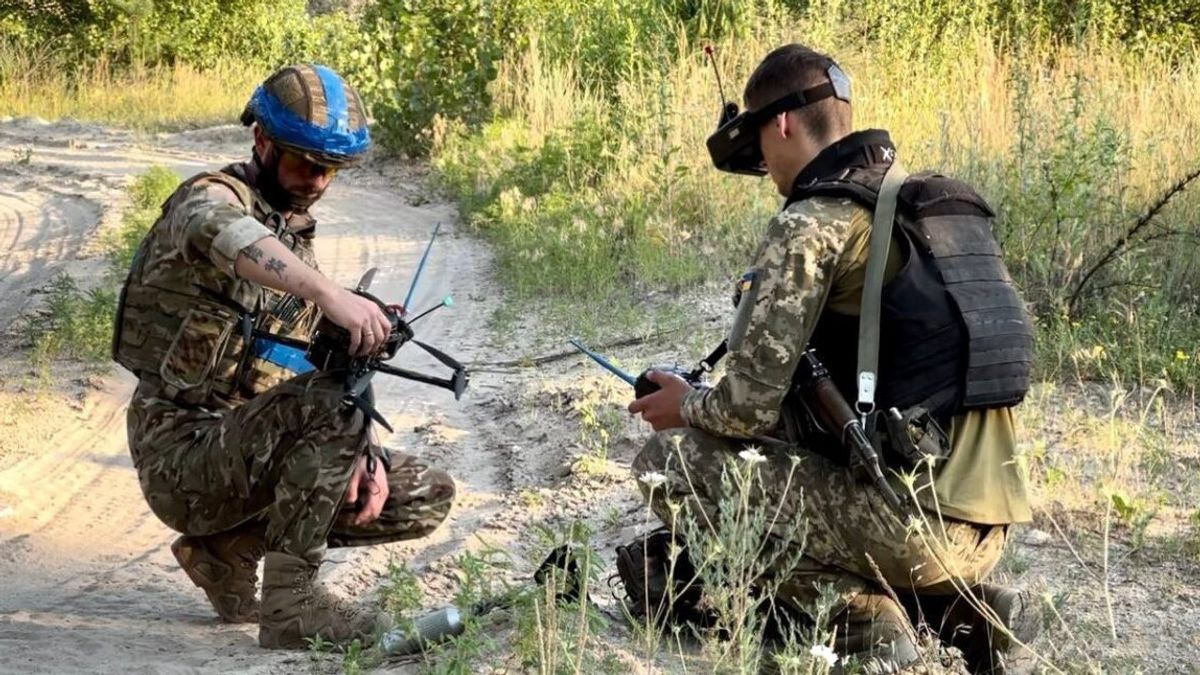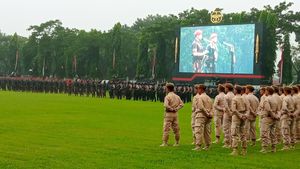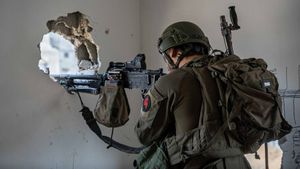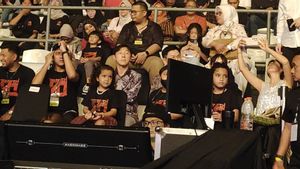JAKARTA - Digital Transformation Minister Mykhailo Fedorov last month said Ukraine would produce thousands of long-range drones capable of carrying out deep attacks on Russian territory by 2024, with 10 drone manufacturing companies already in place.
Fedorov said it after a spate of Ukrainian drone attacks on Russian oil facilities in recent weeks.
"The long-range kamikaze drone category is growing, with ranges of 300, 500, 700, and 1,000 kilometers. Two years ago, this category was not available at all," he told Reuters.
Fedorov is key to Ukraine's efforts to nurture private military startups to innovate and build the drone industry as the war enters its third year, with Ukraine looking for new ways to fight Russia's very powerful forces.
A series of attacks on oil facilities recently, he said, reflected the government's progress in rapidly negotiating the drone market and increasing funding for it, with the country acting as venture investors.
"About 2.5 million US dollars in grants are allocated to military tech startups through the BRAVE1 initiative formed by the government last year, the number to be increased by about ten times by 2024," he said.
"We will struggle to increase financing even more," he added.
Unlike Russia, whose drone production is dominated by the state, most drone manufacturers in Ukraine are private. Fedorov says only one in 10 companies whose drones can fly to the area around Moscow or St Petersburg which is a state company.
Since the first year of full-scale war, Russia has used thousands of Iranian "Shahed" drones flying toward their targets and blown up its impact for long-range attacks.
Ukraine's production and delivery rate increased more than 120 times in 2023, according to Fedorov, it was part of a broader push in times of war to develop and produce drones to narrow the gap with Russia's attack capabilities.
Fedorov said he agreed with Ukraine's military spy chief Kyrylo Budanov's assessment Kyiv had reached "certain equity" with Moscow in long-range drone production.
"We need to act in an anti-bircracy way. This is at the heart of a breakthrough in the technological war. We will continue to bet on this, to work in this direction. Because technology can really save us," he said, citing a shortage of artillery shells facing Ukrainian forces.
Overall, more than 300,000 drones of various types were ordered last year and more than 100,000 shipped to the front lines, he said, adding the figures did not include a supply of volunteers, which he said provided "significant contributions".
President Volodymyr Zelensky has set a target for Ukraine this year to produce one million First Person View (FPV) drones.
It is known that the Ukrainian drone industry relies heavily on components from foreign countries, including China, which is widely seen as an ally of Russia. Fedorov said there were efforts to localize component production.
SEE ALSO:
"That's why I think if we continue this trend, by the end of this year we will have many companies that have produced more than 50 percent of their components locally."
Ukraine itself has coached 20,000 drone operators since launching a grant program for military training in private schools in early 2023, he said, adding there were 20 such schools.
"We pay for every member of the military who comes to these schools. Now we have plans to turn it into a bigger country program and separately modernize, update some training centers and make them function at a high level," he said.
The English, Chinese, Japanese, Arabic, and French versions are automatically generated by the AI. So there may still be inaccuracies in translating, please always see Indonesian as our main language. (system supported by DigitalSiber.id)


















